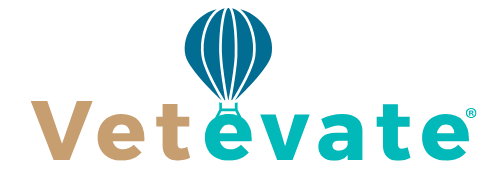The veterinary profession has experienced a surge in demand over the past decade, with pet ownership rising and livestock health remaining a vital industry concern. Employers in veterinary medicine often face challenges in recruiting qualified candidates, while professionals seek meaningful roles that align with their skills and career goals. In this evolving market, veterinary job boards have become powerful tools that connect talent to employers with greater efficiency and accuracy. They not only streamline the hiring process but also foster stronger professional communities within veterinary medicine. Understanding how and why veterinary job boards make these connections illuminates their growing importance in the world of animal healthcare.
Centralizing Opportunities in a Fragmented Market
The veterinary job market is inherently fragmented because it spans small private practices, large animal hospitals, nonprofit shelters, academic institutions, government agencies, and corporations in pharmaceuticals or diagnostics. Each of these settings requires veterinarians, technicians, and specialists, but finding openings can be difficult without a centralized platform. Traditional recruitment methods, such as word-of-mouth, local advertisements, or generic job boards, often fail to reach the right candidates because they lack industry-specific targeting. Veterinary job boards address this problem by acting as centralized hubs where employers and candidates gather in one shared space.
By curating listings exclusively for veterinary roles, these boards save candidates from sifting through irrelevant opportunities while giving employers access to a pool of applicants with relevant interests. The concentration of industry-specific positions increases efficiency, as both sides know they are engaging with individuals who are serious about veterinary careers. For new graduates, this centralization is particularly valuable because it provides a clear entry point into the workforce without requiring insider knowledge or personal networks. Similarly, for experienced professionals seeking advancement or a change, specialized job boards reduce the time and frustration of searching across scattered sources.
Enhancing Visibility and Access for Employers and Candidates
Veterinary job boards provide an unparalleled level of visibility for both employers and job seekers. For employers, the ability to post an opening on a platform dedicated to the veterinary profession ensures that the listing reaches the most relevant audience. Many job boards also offer premium placement or featured listings, which can significantly expand the reach of urgent or competitive roles. Small clinics that may not have the resources for large recruitment campaigns benefit from this increased visibility, putting them on the same stage as major employers. This levels the playing field and allows organizations of all sizes to connect with talent that might otherwise overlook them.
For job seekers, these platforms offer easy access to a wide range of opportunities, from internships and residencies to senior leadership positions. Many boards provide advanced search functions that allow candidates to filter by location, specialty, experience level, or employment type. This makes it easier to find positions that align with personal and professional goals, whether that means pursuing a career in exotic animal care, large animal practice, or academic research. Additionally, job boards often feature resources such as career advice, salary guides, and employer profiles, giving candidates more context to evaluate potential positions. By enhancing both visibility and access, veterinary job boards serve as bridges that reduce the gap between supply and demand in the profession.
Streamlining the Recruitment Process with Technology
Technology plays a central role in why veterinary job boards are so effective at connecting talent to employers. Modern platforms are designed to simplify every step of the hiring process, from posting to application to follow-up. Employers can upload job descriptions quickly, manage applicant flow through dashboards, and communicate directly with candidates in a streamlined manner. Many job boards also integrate with applicant tracking systems, allowing veterinary practices and organizations to keep records organized without duplicating administrative effort. This efficiency is particularly important in veterinary medicine, where time is often in short supply due to the demanding nature of clinical work.
On the candidate side, job boards use technology to improve the application experience. With user-friendly interfaces, mobile compatibility, and options to upload resumes or create profiles, candidates can apply for multiple positions quickly and easily. Some platforms even use algorithms to suggest positions based on uploaded qualifications and stated preferences, creating personalized experiences that increase the likelihood of successful matches. Employers benefit from these matches as well, since they attract candidates who are not only qualified but also genuinely interested in the role and organization.
Technology also enables the collection of data that can inform hiring strategies. Employers gain insights into how many candidates view their postings, how quickly applicants respond, and which job descriptions generate the most interest. This allows them to refine future listings and improve their overall recruitment approach. For candidates, the ability to track applications and receive updates creates a more transparent process that reduces uncertainty. These streamlined systems benefit both sides and make veterinary job boards far more than static listings—they become dynamic recruitment ecosystems.
Building Community and Supporting the Veterinary Profession
Beyond their practical function as hiring tools, veterinary job boards contribute to building stronger professional communities. The veterinary field can sometimes feel isolating, particularly for those in rural areas or small practices. Job boards foster a sense of connectedness by creating spaces where professionals can explore not just employment opportunities but also resources, events, and industry news. Some platforms include discussion forums, mentorship opportunities, or continuing education resources, which help to strengthen professional networks and keep individuals engaged with the broader field.
This community-building aspect is crucial for retention and professional satisfaction. Veterinary medicine is a demanding career, often associated with high stress and burnout. By connecting professionals to new opportunities and supportive networks, job boards can play a role in helping individuals find environments that suit their needs and values. Employers also benefit from engaging in this community because they can establish their organizations as desirable workplaces through employer branding. By presenting a positive image, sharing stories, and participating in discussions, employers can attract not just applicants but advocates who will speak positively about their clinics or institutions.
Moreover, veterinary job boards support the profession as a whole by making recruitment more transparent and accessible. When job opportunities are easier to find and fill, the workforce becomes more adaptable to changing needs. This helps ensure that pet owners, farmers, researchers, and communities have access to veterinary expertise when they need it most. As the field continues to evolve with new technologies, treatments, and specializations, job boards play a central role in aligning talent with opportunity in ways that strengthen the profession’s future.
Connecting Talent to Employers
Veterinary job boards have emerged as vital tools for connecting employers and talent in a profession that is both specialized and in high demand. By centralizing opportunities, enhancing visibility and access, streamlining recruitment with technology, and fostering community, these platforms address many of the challenges that have traditionally plagued the veterinary job market. They help employers reach the right candidates more efficiently and empower veterinary professionals to pursue careers that match their goals and values. In doing so, they support not only individual practices and institutions but also the health and well-being of animals and communities everywhere. As the veterinary profession continues to grow and adapt, the role of job boards will remain indispensable in ensuring that talent and opportunity are never far apart.




